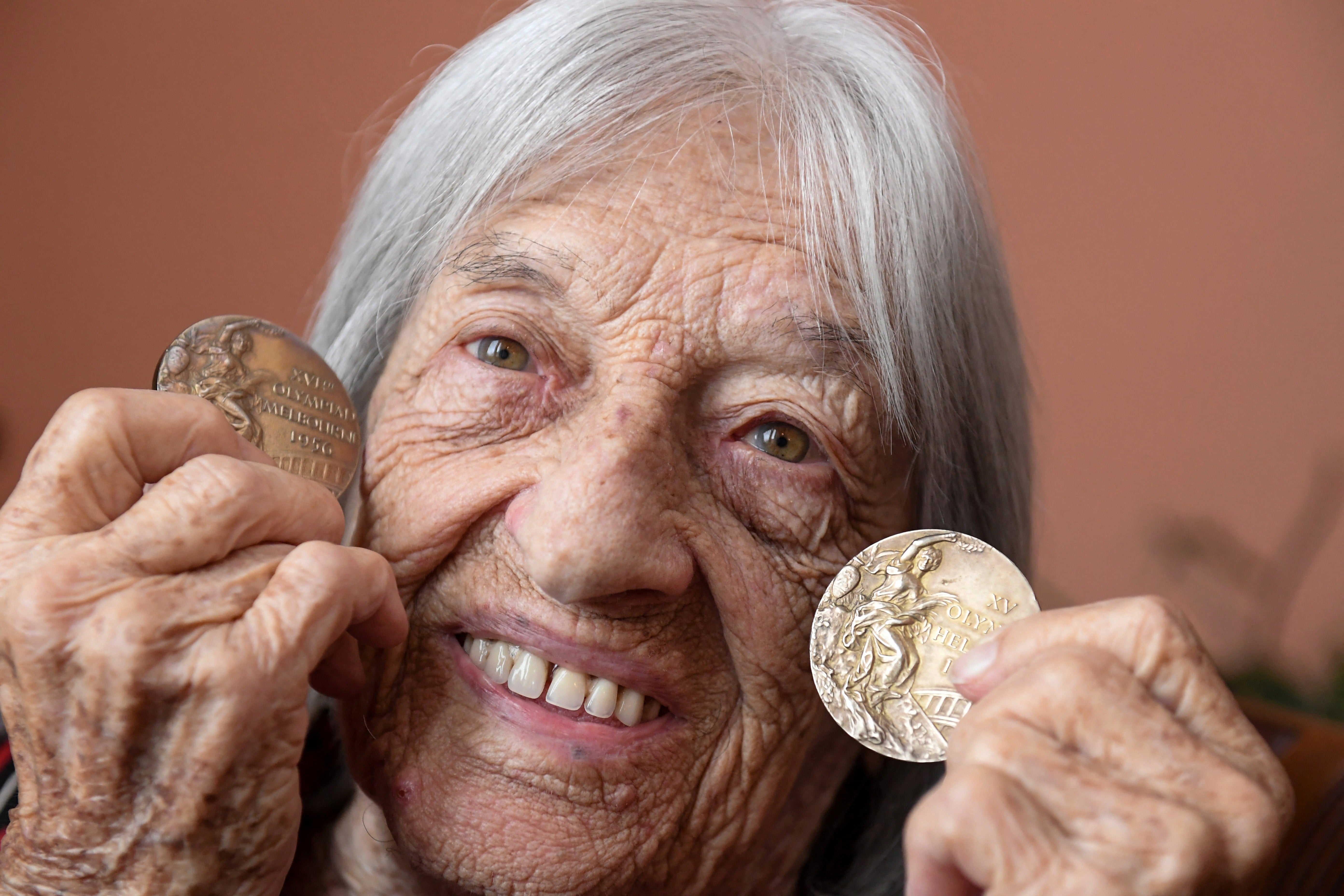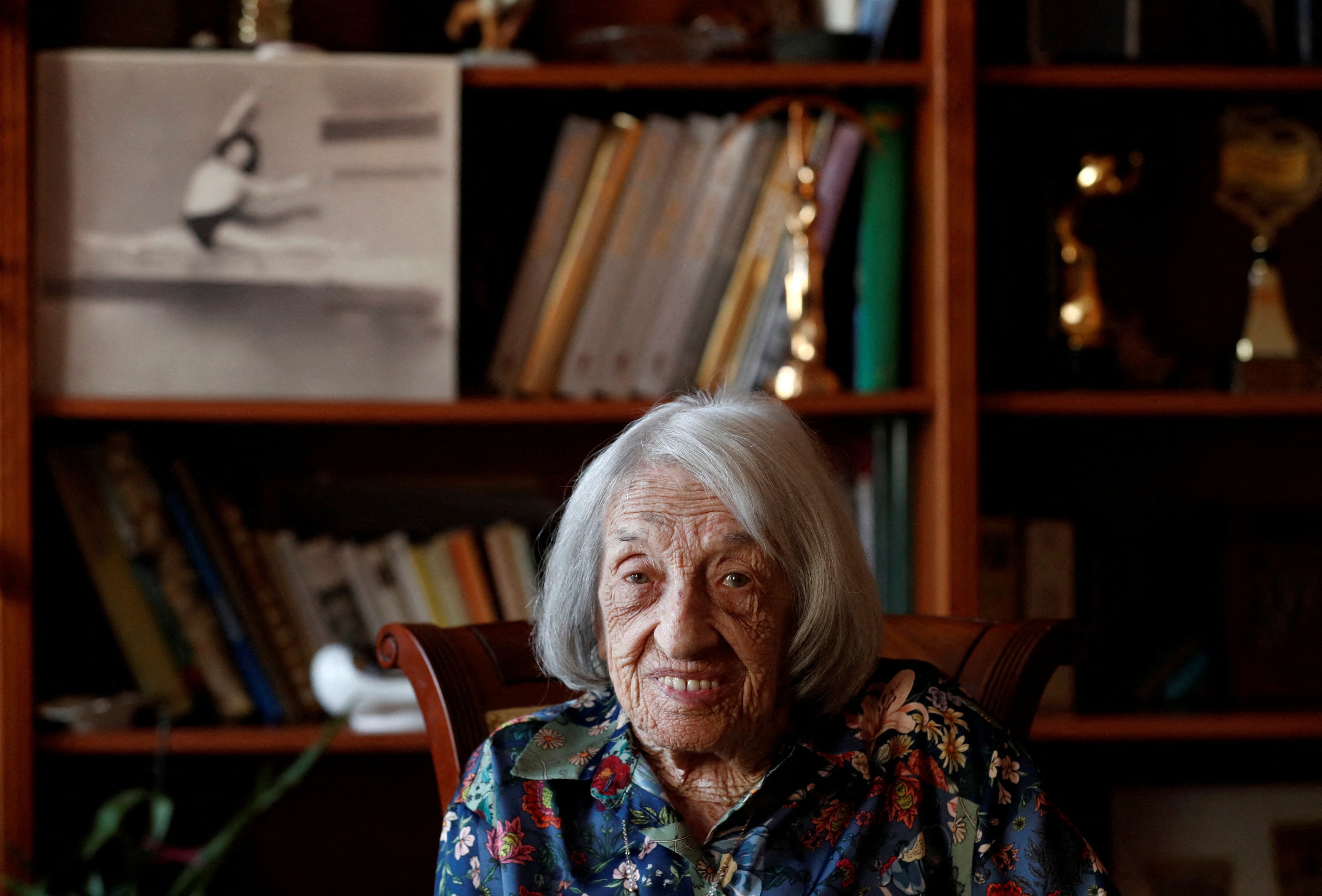Agnes Keleti, Holocaust survivor and oldest living Olympic gold medallist, dies at 103
The Hungarian Olympic Committee said that the five-time Olympic champion escaped deportation to Nazi death camps before a historic run to become one of the greatest gymnasts of all time, including four gold medals at Melbourne 1956

Your support helps us to tell the story
From reproductive rights to climate change to Big Tech, The Independent is on the ground when the story is developing. Whether it's investigating the financials of Elon Musk's pro-Trump PAC or producing our latest documentary, 'The A Word', which shines a light on the American women fighting for reproductive rights, we know how important it is to parse out the facts from the messaging.
At such a critical moment in US history, we need reporters on the ground. Your donation allows us to keep sending journalists to speak to both sides of the story.
The Independent is trusted by Americans across the entire political spectrum. And unlike many other quality news outlets, we choose not to lock Americans out of our reporting and analysis with paywalls. We believe quality journalism should be available to everyone, paid for by those who can afford it.
Your support makes all the difference.Agnes Keleti, a Holocaust survivor and the oldest living Olympic medal winner, has died. She was 103.
Keleti died on Thursday morning in Budapest, the Hungarian state news agency reported. She was hospitalised in critical condition with pneumonia on Christmas Day.
She won a total of 10 Olympic medals in gymnastics, including five golds, for Hungary at the 1952 Helsinki Games and the 1956 Melbourne Games. She overcame the loss of her father and several relatives in the Holocaust to become one of the most successful Jewish Olympic athletes.
“These 100 years felt to me like 60,” Keleti told The Associated Press on the eve of her 100th birthday. “I live well. And I love life. It’s great that I’m still healthy.”
Born Ágnes Klein in 1921 in Budapest, her career was interrupted by the Second World War and the cancellation of the 1940 and 1944 Olympics. Forced off her gymnastics team in 1941 because of her Jewish ancestry, Keleti went into hiding in the Hungarian countryside, where she survived the Holocaust by assuming a false identity and working as a maid.
Her mother and sister survived the war with the help of famed Swedish diplomat Raoul Wallenberg, but her father and other relatives perished at Auschwitz, among the more than half a million Hungarian Jews killed in Nazi death camps and by Hungarian Nazi collaborators.
Resuming her career after the war, Keleti was set to compete at the 1948 London Olympics, but a last-minute ankle injury dashed her hopes.

Four years later, she made her Olympic debut in Helsinki at the age of 31, winning a gold medal in the floor exercise as well as a silver and two bronzes. In 1956, she became the most successful athlete at the Melbourne Olympics, winning four gold and two silver medals.
While she was becoming the oldest gold medalist in gymnastics history at the age of 35 in Melbourne, the Soviet Union invaded Hungary following an unsuccessful anti-Soviet uprising. Keleti remained in Australia and sought political asylum. She then immigrated to Israel the following year and worked as a trainer and coached the Israeli Olympic gymnastics team until the 1990s.
Join our commenting forum
Join thought-provoking conversations, follow other Independent readers and see their replies
Comments